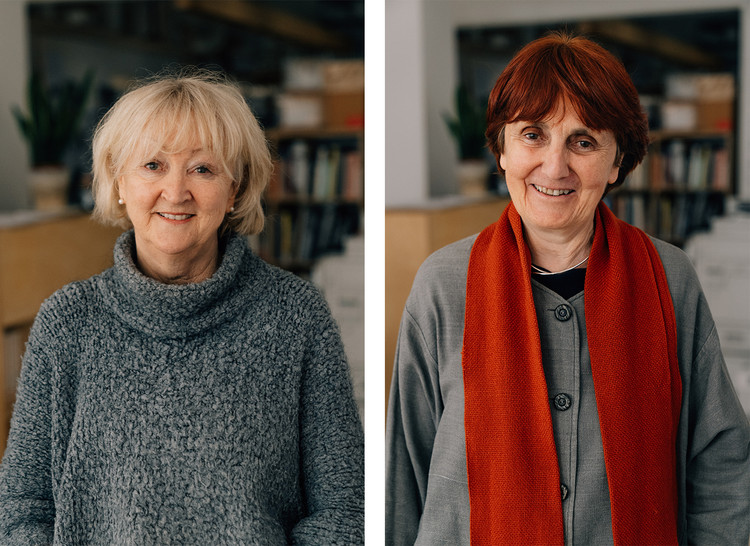
On the occasion of UNESCO’s International Day of Light, The Daylight Award has announced the 2022 Laureates; Yvonne Farrell and Shelley McNamara of Grafton Architects for their architecture, and Anna Wirz-Justice for her research. The winners were commended for their continuous exploration and prominent humanistic spirit regarding the celebration of daylight in their respective practices, allowing it to celebrate and enhance the quality of life.

Awarded with the Daylight Award for Architecture, Yvonne Farrell and Shelley McNamara of Grafton Architects have successfully employed natural light throughout their varied design projects, using it to differentiate between spaces to highlight their different importance, functional purpose, and experiential atmosphere. Throughout their many projects, daylight is used as an "integrated and irreplaceable quality", complementing the spatial arrangement and technical systems of each project.
We describe our architecture as physics of space, physics of culture. What we really try to do is capture the environmental conditions of location, for people to enjoy it. It is a cultural relationship. Our relationship with light starts with looking at the angle of the sun, one of the aspects that we look at very deeply. As we move to the future times of sustainability, we should be aware that light is an extraordinary energy, it is not just a visual delight. -- Yvonne Farrell
Yvonne Farrell and Shelley McNamara co-founded Grafton Architects in 1978. They are Fellows of the RIAI, International Honorary Fellows of the RIBA and elected members of Aosdána. Following multiple years working in academia, they are currently Professors at the Accademia di Archittettura, Mendrisio, Switzerland. In 2016, Grafton Architects were honored with the inaugural RIBA International Prize for the Universidad de Ingeniería y Tecnología (UTEC) in Lima, Peru, and in 2020, they won the RIBA Royal Gold Medal and were selected as the 2020 Pritzker Prize Laureates.


Awarded with the Daylight Award for Research, Anna Wirz-Justice is a pioneer in how human circadian rhythms and sleep are regulated by light, defining the key parameters of how light acts as a biological stimulus, including the
importance of when we see light, how long we see it, and of what intensity and color spectrum. Her work allowed her and fellow researchers to establish scientific and therapeutic applications of light as a treatment for different areas of mental illness, leading to the formation of a manual for health care professionals, that introduces evidence-based light treatment to improve mood and sleep disorders.
Research on light’s widespread effects on humans, independent of vision, has changed architecture in the last decade. It has initiated new lighting standards to incorporate non-visual effects of light as necessary for health. It has re-awakened interest in the huge potential of daylight to complement artificial light. -- Anna Wirz-Justice
Anna Wirz-Justice, PhD, is a neurobiologist and Professor emerita at the Centre for Chronobiology, Psychiatric Clinic of the University of Basel. She is s a former president of the Society for Light Treatment and Biological Rhythms and the Swiss Society for Sleep Research, Sleep Medicine, and Chronobiology. She introduced light therapy to Europe, and studied Seasonal Affective Disorder and depression during pregnancy, borderline personality disorder, and dementia, carrying out her first sleep phase advance experiment on a bipolar patient. She published the field’s first treatment manual for clinicians, Chronotherapeutics for Affective Disorders with Francesco Benedetti and Michael Terman. Anna has collaborated with artists and architects throughout her practice to apply circadian principles in design.

This year’s laureates were selected and appointed by a distinguished jury, which includes Anne Lacaton, Principal of Lacaton & Vassal Architectes, Dorte Mandrup, founder of Dorte Mandrup A/S, Marilyne Andersen, Professor of Sustainable Construction Technologies at École Polytechnique Fédérale de Lausanne, Gerd Folkers, Professor for Pharmaceutical Chemistry since at the ETH Zurich, Russell Foster, Director of the Nuffield Laboratory of Ophthalmology and Head of the Sleep and Circadian Neuroscience Institute at the University of Oxford, Juhani Pallasmaa, Finnish architect, writer, teacher and practicing architect, and Koen Steemers, Professor of Sustainable Design at the Martin Centre for Architectural and Urban Studies in the University of Cambridge.

The Daylight Award honours and supports daylight research and daylight in architecture, for the benefit of human health, well-being and the environment. The award places specific emphasis on the interrelation between theory and practice. It is established by the philanthropic foundations VILLUM FONDEN, VELUX FONDEN and VELUX STIFTUNG, and is conferred biennially in two categories: The Daylight Award for Research and The Daylight Award for Architecture. The award is given as personal prizes, and each to the sum of €100,000.





















